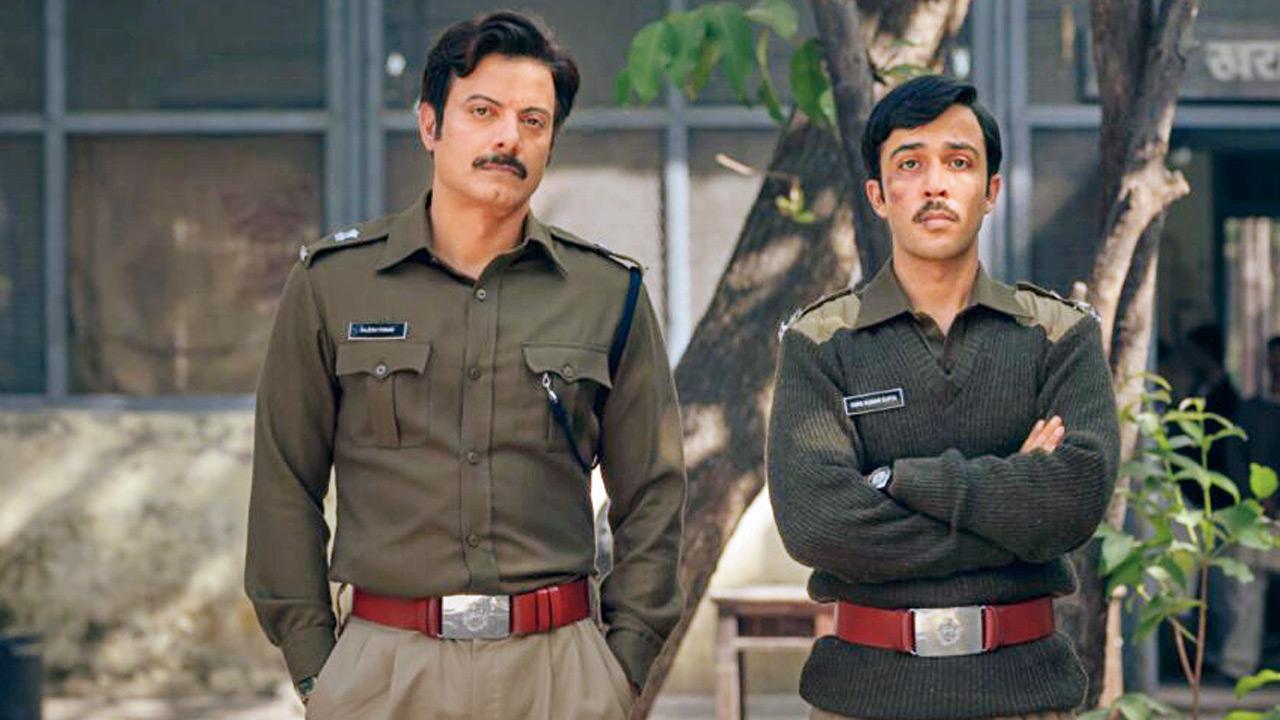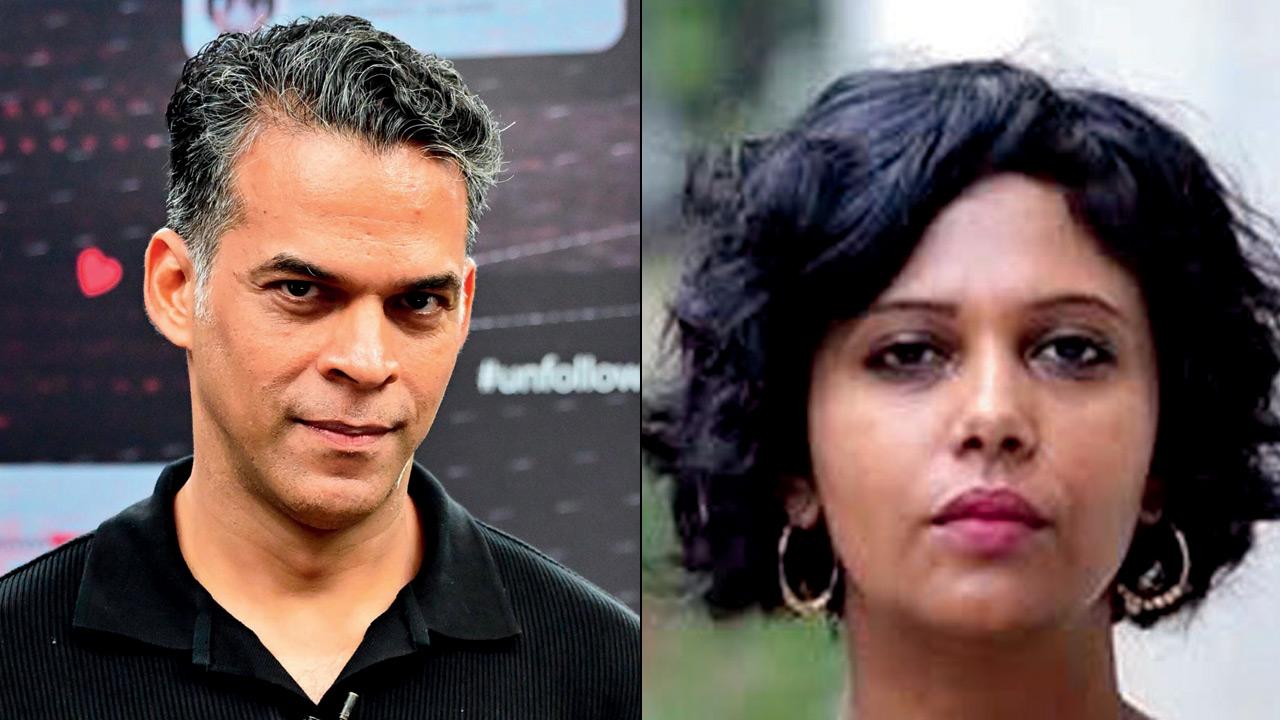Why Vikramaditya Motwane’s Black Warrant is sheer masterclass on how you can pick a book and dive even deeper into a series with it!

Rahul Bhat (left) and Zahan Kapoor in a still from the Netflix series Black Warrant
 Here’s the thing about books and movies/series based on them—there’s inevitably a debate, at any rate, a discussion, on how one was better than the other.
Here’s the thing about books and movies/series based on them—there’s inevitably a debate, at any rate, a discussion, on how one was better than the other.
ADVERTISEMENT
Often enough, it’s the book that wins, among readers, who’ve participated more on the imagination, with the written word, as well.
It’s only fair then that soon as I finish watching the seven-part, first season of Black Warrant, authentically created by Vikramaditya Motwane, masterfully scripted by Satyanshu Singh—I instantly speed-read the book of the same name, by Sunil Gupta, Sunetra Choudhury, that the Netflix series is based on.
Never mind what I make of the inevitable comparison. I call up Choudhury, instead, to ask what she thinks of the show, vis-à-vis her own non-fiction/journalistic book. “I’d argue the series is better,” Choudhury says.
This is the rarest thing to hear.
Black Warrant essentially means death warrant. Which lays out the precise time/procedure to execute a convict’s death sentence.

Director Vikramaditya Motwane (left) and journalist Sunetra Choudhury
The book/series is based on the life of one, Sunil Gupta, co-author and protagonist who, 1981 onwards, spent 35 years, as jailer within the 200-acre campus of Tihar, in Delhi, that is Asia’s largest prison.
The first thing you learn from Gupta’s life is how professional jailers, mostly untrained, permanently posted in the same prison, hold neither the rank/respect of police officers.
Nor do they comfortably belong to the civilian world, that actively looks down upon them. For its proximity to the power-centre and India’s news-media shops, Tihar particularly gets bad press (perhaps for good reasons, too).
If anything, “numberdaars” run the damn show within Tihar. That is, long-serving prisoners themselves, who get appointed as bouncers by the state, upon their display of good behaviour; such as Chiranjit, Dhumi in Black Warrant.
Between numberdaars, both hardened and high-profile criminals/under-trials, and bureaucratic hierarchies, all of ’em laced with corruption—it’s almost a miracle, if someone like Gupta can get away with his life, let alone izzat/dignity, intact. Gupta is grappling, like everyone else.
Memoirs, especially in India, and biopics all the more, are essentially exercises in personal exaggerations.
Choudhury, a journalist who moved from television to print (good for her), tells me, “Take any IPS officer’s memoir—it’s all about ‘I did this, I did that’; simply talking themselves up, without once surveying the serious greys between.”
With Gupta, Choudhury found an “Everyman”. Upon some cajoling, he was willing to admit to Choudhury, in the book, that he owed his very appointment in the jail to the ‘Bikini Killer’ Charles Sobhraj, the “Super IG”, lodged in Tihar then!
This honesty gave her the neutral lens to view all that Gupta witnessed around him.
Non-fiction, even while anecdotal, states facts, that you can’t touch, or torture. Fiction fleshes out moments, fully bringing characters to life, especially, if on screen. Each medium serves its unique purpose. Truth doubtlessly elevates fiction.
Black Warrant, as a series, goes deeper into gang-wars—Tyagi, Haddi, Sardars—in Tihar, also delving into a prison-accountant’s world (Rajendra Gupta), caught in a peculiarly Kafkaesque mess.
There are three strong jailer parts, alongside the lead—in particular, Rahul Bhat, as deputy superintendent Rajesh Tomar, who’s downright brilliant. None of which exists in the 2019 book.
They would’ve emerged from further conversations between Gupta and the show’s writers, Choudhury tells me: “I was more interested in the psyche of the jailer. My previous book, Behind Bars (2017), is wholly an account from inmates’ perspectives.”
The jail, of course, is as much a location as an old sub-genre in films itself; even in India, from the classics (V Shantaram’s Do Aankhen Barah Haath) to the contemporary (Vetrimaaran’s Vada Chennai), with a lot of BS along the way too.
What if I told you that the most entertaining yet frighteningly realist, desi prison-flick I’ve seen lately is UT69 (2023), starring businessman Raj Kundra, in the lead, playing himself, as an inmate at Mumbai’s Arthur Road Jail? Well, you’ll just have to watch it to believe me!
Motwane’s Black Warrant, part-personal, part-history, is like none of the above. It actually reveals a filmmaker, so on top of his game, having a ball, like nobody else in Bombay I know—producing content, regardless of genre/form (series/movies).
In this case, touching upon individual lives, zooming out to well-known cases/names: Sobhraj, Ranga-Billa, Maqbool Bhat… The series stops at 1984.
If the book is anything to go by, the second season could expand towards even better-known public figures associated with Tihar: Kiran Bedi, Rajan Pillai, Subrata Roy, Anna Hazare, Arvind Kejriwal, Afzal Guru, Manu Sharma (Jessica Lal case)… Who knows? The possibilities are limitless.
At the centre of this is a deliberately puny, unremarkable-looking Zahan Kapoor, grandson of the great Shashi Kapoor, as Sunil Gupta, the jailer! As per the book, Gupta is six feet tall, weighing 56 kilos.
I had to ask Choudhury, since she’s spent so much time with the OG Sunil, if Zahan, to her, felt anything like her protagonist.
She says, “When we watched the show together [in Delhi], Sunil did tell me: ‘Well, I wasn’t that weak, either!’ Zahan does look different.
“But onscreen, he just becomes Sunil, with the West Delhi accent, that’s so spot-on as he goes, ‘Mera naam, Sunil Gupta’.” True. So true!
Mayank Shekhar attempts to make sense of mass culture.
He tweets @mayankw14 Send your feedback to mailbag@mid-day.com
The views expressed in this column are the individual’s and don’t represent those of the paper.
 Subscribe today by clicking the link and stay updated with the latest news!" Click here!
Subscribe today by clicking the link and stay updated with the latest news!" Click here!







